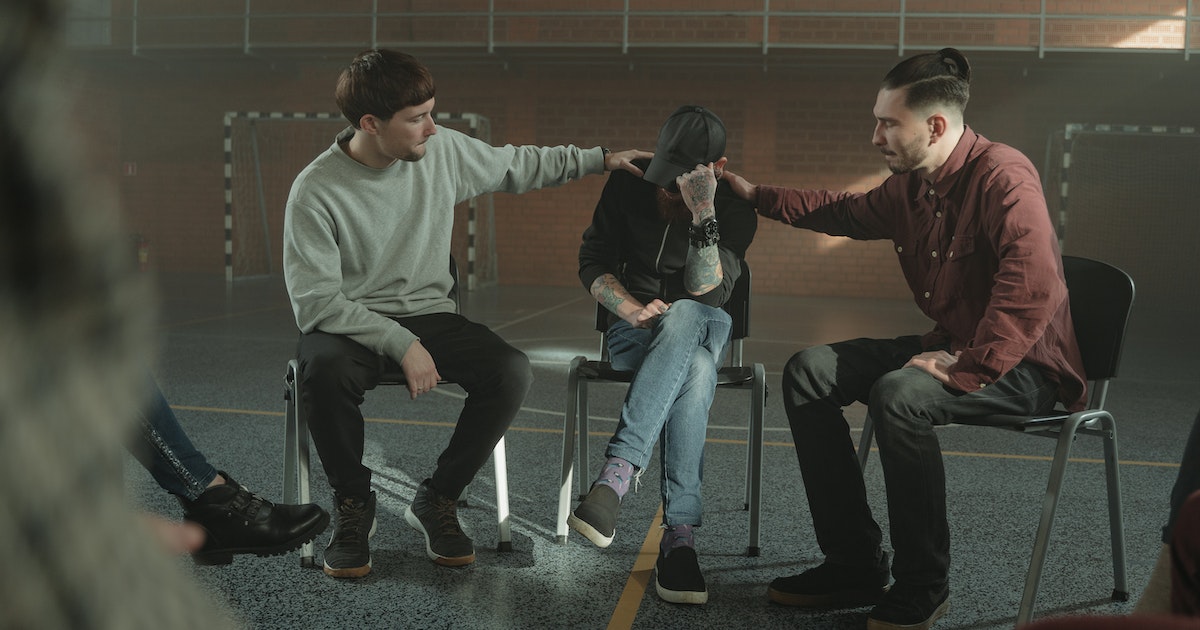Group therapy is a type of psychotherapy that brings together roughly 12 patients and one or more therapists. Typically, groups meet for three hours several times a week depending on the treatment plan. All clients will attend individual counseling in addition to groups.
Many groups are designed to address a specific problem, such as depression, codependency, relapse prevention, anxiety or substance use. Other groups are more general in nature and tackle issues like social skills, loneliness and low self-esteem. While joining a group of strangers may sound intimidating, most people are pleasantly surprised to see what this type of therapy can do.
Since group therapy is a key component of our intensive outpatient program in Easton PA, we feel it’s important for people to know what to expect. Let’s learn more about group therapy and how it benefits the addiction recovery process.
Safe and Supportive Environment
Group therapy sessions are led by trained therapists who create a safe and confidential space for participants. You can expect a non-judgmental atmosphere where you’re able to express your thoughts and feelings openly.
Of course, you don’t have to share everything right away. You are in control of the information you share about yourself, when and how often. Most people tend to share more when they feel comfortable and safe in the group.
Keep in mind that there are different types of groups, such as self-help groups, 12-step meetings, SMART recovery meetings, workshops and psychotherapy groups. You’ll want to choose the groups that pertain to the issues you are working on.
Diverse Group Dynamics
Even though support groups typically work on a specific issue, they still consist of individuals with diverse backgrounds and experiences. This is particularly true in recovery, as addiction can happen to anyone. The diversity that group therapy offers can be enriching, as it exposes you to different perspectives and provides opportunities for empathy and learning.
Shared Experiences and Validation
One of the primary benefits of group therapy is the sense of validation that comes from sharing your experiences with others who understand and relate to your struggles. This validation can reduce feelings of isolation and loneliness, which are triggers for relapse.
If you’re not ready to share, that’s okay, too. As you listen to others, you may gain insight into your own issues. In other words, there’s a lot to learn about yourself simply by listening! When you’re ready, you can open up. You will not be pressured to share something you don’t feel comfortable with.
Accountability and Feedback
Group members often hold each other accountable for their actions and progress. This is helpful after an intensive outpatient program in Easton PA, as you’re transitioning to everyday life and learning to take responsibility for your actions. For example, if you plan to attend a party one weekend, you’re holding yourself responsible for not drinking. Accepting accountability will help you stay sober.
Respect and Boundaries
People who struggle with addiction often have trouble with respect and boundaries. However, group therapy is the perfect place to learn this, as all members are expected to have respect for others, follow rules and maintain boundaries. This ensures that everyone feels respected and safe. Group therapy gives you the opportunity to practice these skills so that you can apply them in the real world.
Flexibility
Group therapy is flexible, with many programs running for 8-10 weeks. How long you stay in group therapy depends on your goals and your progress. Some people only need a few months of group therapy while others need more. Your journey is unique to you, so be sure to discuss your needs with a therapist or addiction treatment specialist.
Group Therapy is Vital for Long-Term Healing
Group therapy offers a unique and valuable opportunity for personal growth, healing and support. By participating in group therapy, you can expect to find a safe and non-judgmental environment, shared experiences and the chance to develop valuable skills for coping with life's challenges.
Whether you're struggling with mental health issues, addiction or simply seeking personal growth, group therapy can be a transformative and enriching experience on your journey towards well-being. Contact Recovery Cove at 484-549-COVE to learn more about group therapy and how it benefits the addiction recovery journey.




